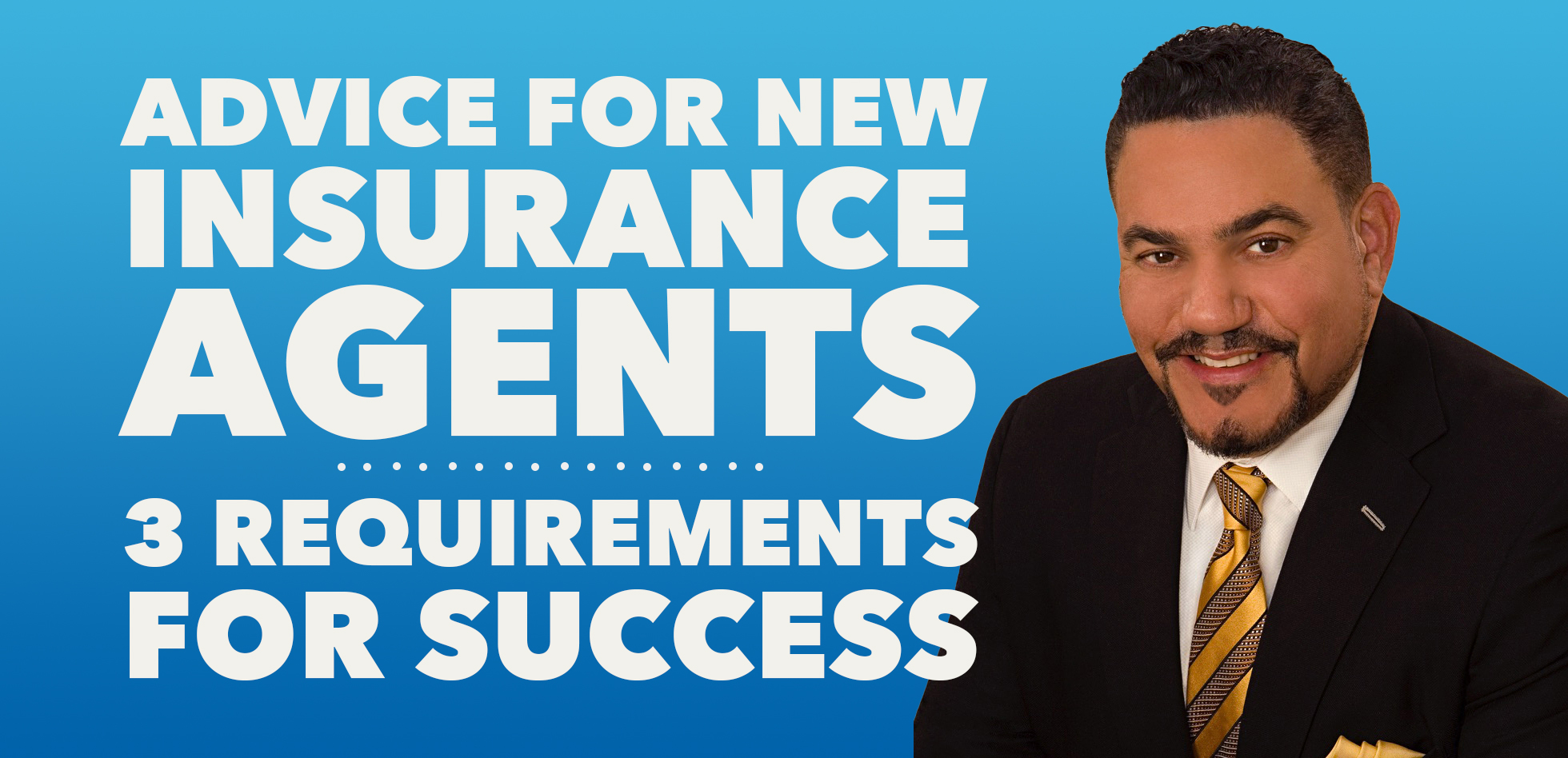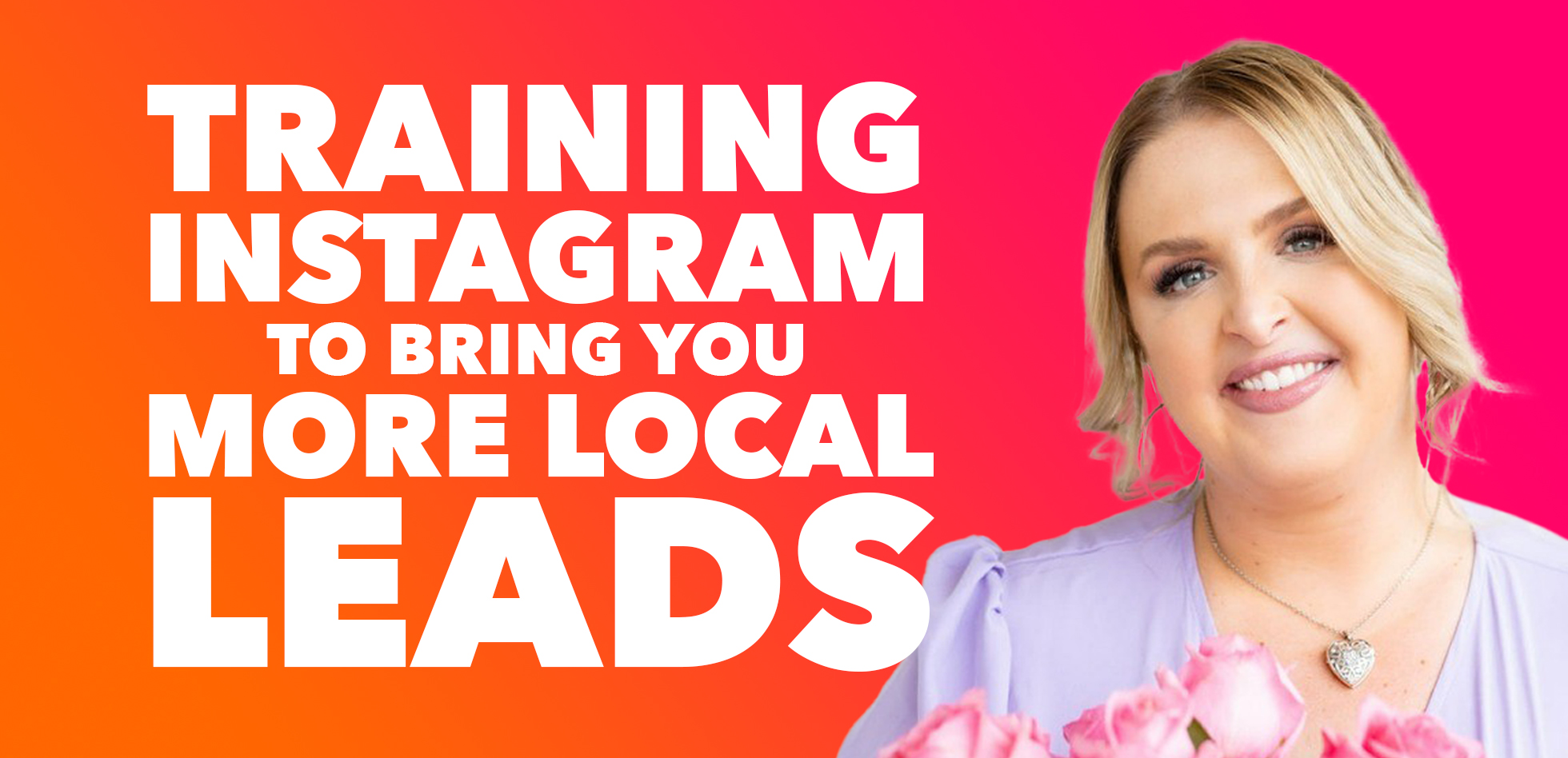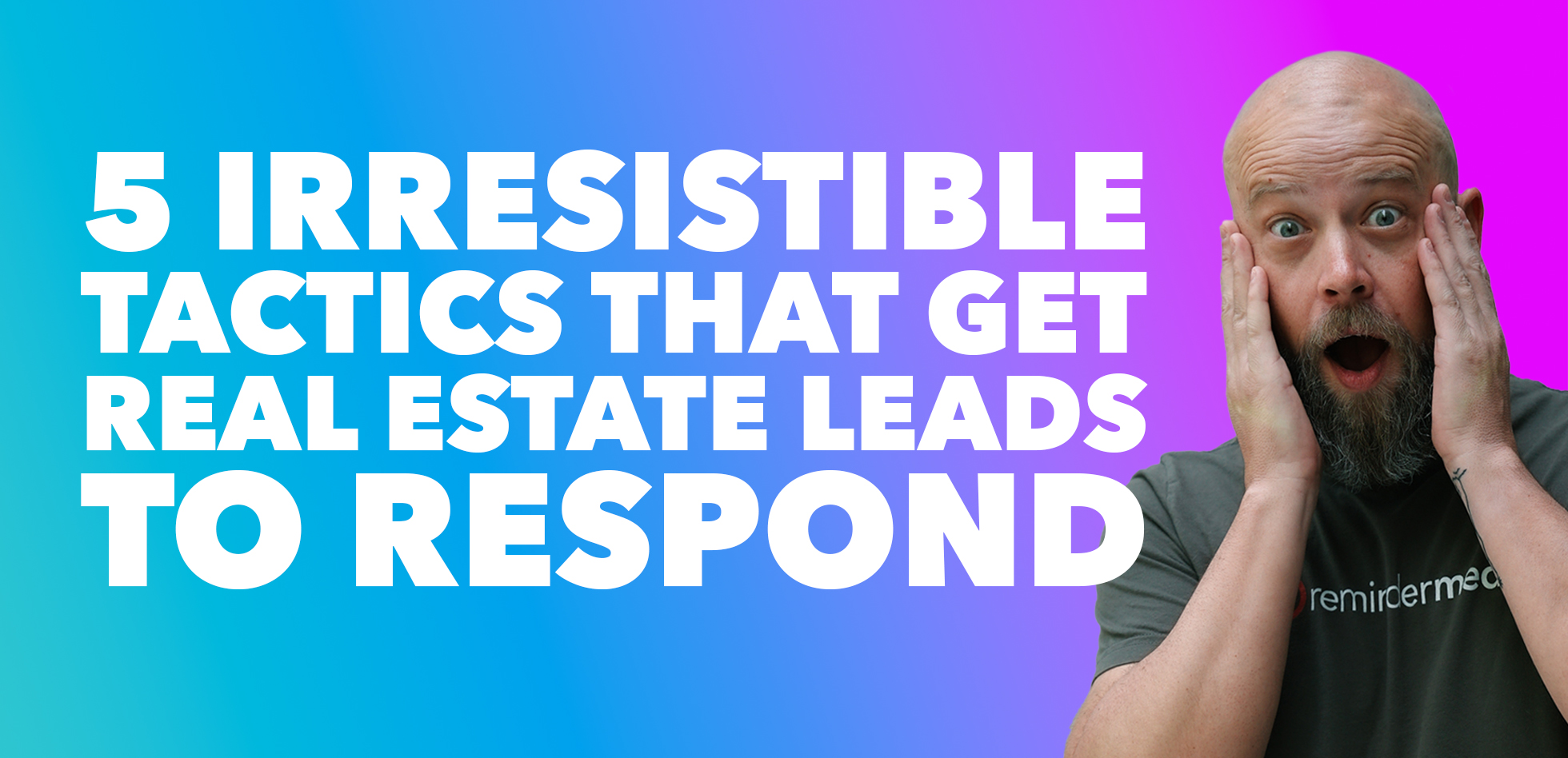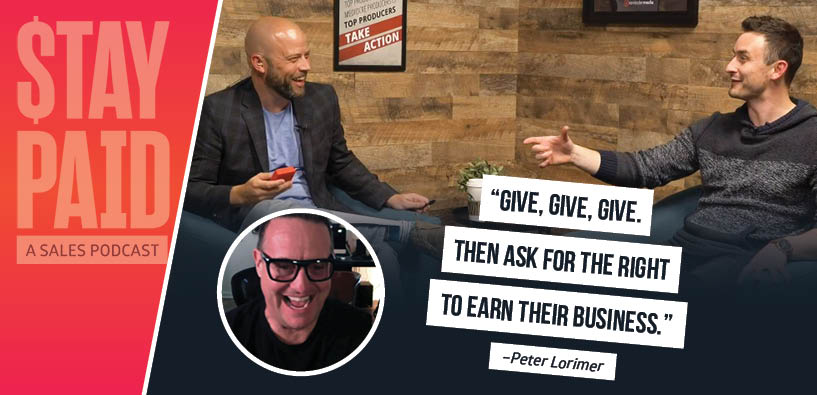Peter Lorimer is an entrepreneur, real estate expert, and co-host of the Netflix series Stay Here. In 2010, he launched PLG Estates—a Beverly Hills-based boutique real estate brokerage with more than 200 agents.
Today on Stay Paid, Peter discusses his amazing journey from hit record producer to rockstar real estate broker, offers tips for overcoming imposter syndrome, and relays countless golden nuggets you can use to grow your business.
Key Points:
- Don’t be afraid to take a leap of faith.
- Treat every customer like a high-end client.
- Give, give, and give—then ask for the right to earn the business of your ideal clients.
Q: Introduce yourself to our audience.
My journey started and is still very rooted in creativity. I was born in Leeds, in the north of England. I grew up in a pretty crappy neighborhood. I wanted to escape not just the city, but kind of everything.
Back then, I dove headfirst into music. I was a classical trombonist, of all things. I did really well playing in orchestras and got a scholarship from the Royal College of Music.
In Britain in the early 1980s, you didn’t need to show ID to get into nightclubs. One night, I walked into a club in my hometown called The Warehouse. The DJ was from Chicago. This is where I first experienced Chicago house music. I said, “Screw the trombone, I want to make house records.”
I realized there was no music business in my town, so I dropped out of high school and was off to London to become a record producer.
I remember arriving in London with a lump in my throat and not much money in my wallet. All my life, there have been these moments of fight or flight. I can’t get all the way to the end logically, and the rest of it is a leap of faith.
I was in the right city, where all the labels were. What now? I worked in every dead-end job: kitchen, cleaner, security guard, and even the lingerie department at a department store. A lot of my story is just me saying, “I don’t know how it’s going to happen, but it’s going to happen.”
I enjoyed nightclubs a lot and frequented all the clubs in London. I happened to be in a nightclub at the right moment. A guy asked if I knew how to play piano and whether I knew computers. Soon, I was in a band that had a number one hit in the UK. My career was off and running.
I remember working with George Michael in the UK, and his manager was a big, important LA dude. He said, “If you’re ever in LA, I’ll manage you.” I remembered that, and I took what he said to be legitimate. So, I got on a plane to Los Angeles, then I knocked on his door. I was there on a tourist visa. I remember the look on his face. Because I was friends with George, he hooked me up with a manager here. Then I met a collaborator, and we had 25 number one hits in the US.
I’ve always been very techy because the music I loved was computer-based. I remember being in this chatroom, talking to this kid in Korea about music. He told me about ripping CDs, pre-Napster. When I heard those words, I knew the music business was going to be irreversibly changed.
People think the music business is sex, drugs, and rock ‘n’ roll. I can confirm it’s absolutely that. I was a wild man. It was electronic music, with ecstasy and all sorts of shenanigans. But then I reached a point in my life where I realized I couldn’t continue doing this. It was kind of time to grow up.
I was dating this toxic person from the UK who had a successful antiques business in LA. She folded that business and became a real estate agent. In her first year, she did pretty well, and then all the marbles started to roll into place.
I had a huge hit on the charts. I realized I could party, I could buy a cool car, or I could start investing in real estate. At the time, homes in other markets were double what houses cost in LA.
I realized the internet would make it so people move to places that were cheaper so they could work. I also knew that Los Angeles was undervalued, and if I had too many Benjamins in my back pocket for too long, I’d spend them on something.
I figured out that people were going to start moving to North Hollywood, so I started buying places. My gamble paid off. Next, I saw the chutes of development going on in downtown LA. I’m a big “all or nothing” guy, so I took all my money and invested it in lofts.
Then, a weird phenomenon happened. The people in my former life as a record producer began to see that something had changed. People who worked with me in the music business knew, liked, and trusted me. It turned out they also knew, liked, and trusted me in the real estate business. I realized I might as well get my license.
I remember being in my Keller Williams office in 2007, and I overheard a really great agent saying to his friend, “I just sold my hairdresser his third investment property.” I thought maybe he was a really famous guy, but it was just the local guy up the block.
I spoke to my manager. I realized there was nothing stopping people from walking away from these mortgages that were being sold. I realized something was wrong, though I couldn’t put my finger on it. I spoke to my wife and said we needed to dump everything. We didn’t dump it all—we lost a couple things in the crash—but we sold most of it.
My daughter was born practically the day the crash happened. I said to my wife Cindy that we needed to take all the marbles and push them into Google. Next, I saw a schematic from the same chatroom that had previously told me about ripping CDs. It was a drawing of an iPhone. We took 50 percent of our money and bought Apple stocks.
I loaded up on Netflix the day it came out. By that time, the market was beginning to bubble again. My wife and I invested in lots of properties. That’s the tale of me.
Q: Why did you leave Keller Williams?
In 2010, I was the number one KW agent in Los Angeles County, but I had this burning desire to be in the back room pulling the levers. I like building things—I’m not really driven by money at all.
Keller Williams gave us a great offer, but I wanted out. I wanted to start my own firm. We took a great leap and put our names on the lease, not knowing whether PLG would flounder or fly. Our focus was digital marketing only, and we targeted creatives. We were niching down before that phrase was a thing.
Q: What else was leading you in that direction?
I was thinking about formats that other people wouldn’t normally do. I never had anyone walk into one of my open houses holding a newspaper or a postcard.
When we left Keller Williams, I knew we couldn’t outspend them. But I could run circles around them with media campaigns, because everyone was still living by the “let’s please everyone all the time” philosophy. I called our approach the Velvet Rope Philosophy—if there’s a VIP room, everyone wants to be in it.
I got this idea from Richard Branson, who had a philosophy he called “luxury for all.” Let’s treat everyone like they’re a luxury client, even if they’re buying a $300,000 condo. We went after musicians, actors, and screenwriters. When you represent those kind of people, other people from those same occupations will work with you.
This was all driven by my gut. Today, we have four offices and 200 agents. We’re unafraid to be who we are. I’m seeing that more in real estate nowadays—but, for years, we were alone in doing that.
Q: Do you use the flywheel approach?
I have always been against Zillow. I’ve got nothing personal against them. God love them. Take over the world. I don’t care.
But it comes down to hours, right? The most valuable commodity I have is time. I love my wife and kids, and the more time I can spend with them while earning money efficiently … that’s what I want to do.
I’ve had my agents map out all our deals. Whoever’s listening, do a roadmap of your deals, and see how many hours you spend on each deal. Just determine averages. When you do that, I think you’ll be amazed that the vast majority of your deals actually come from your sphere. Yet, as an industry, we are obsessed with chasing people we have no emotional leverage over.
My entire theory hinges on this: I would much rather work with someone I know, sort of know, might know, or could know.
I know Bob. He introduces me to John. John might be thinking about building a house. John knows I know Bob. We’re both kind of friends with Bob. He also knows he can’t really work with anyone else.
You’ve got your A, B, C, and D list. Your As are your mates. They’re going to work with you, and so are your Bs. Your Cs are where it’s going to be hard. They do not necessarily want to hear from you.
I’ll reach out to someone who knows Bob and say I know Bob. I’ll ping them a few times. Then, I’ll reach out and say I’d love the opportunity to try and earn your business.
Always give them an out, and then go in for the kill.
There are two words we use all the time. The one word is fear. Fear comes in a thousand different disguises. When you boil it down, the number one enemy of success is ego. Ego is fear of failure, rejection, and what other people think of you—fear of not being enough.
When we don’t address the issues that scare us, it’s easy to just say, “I’m busy, because I’—engaged in the act of being a real estate agent.” But I’m not being proactive when I’m doing this—I’m being reactive.
Proactive is picking up the fifty-pound phone, calling everyone in your database, and saying, “Hey Bob? How you doing, mate? How’s the wife? How’s your dog? I just wanted to let you know that I’ve made a change, and I’m working in real estate. I’d love the opportunity to earn your business.”
That’s what I did over and over again. A lot of people didn’t want to work with me. But when you’re polite and of service, and put them first and the money last, that’s when you succeed.
I got out of the music industry because I was a maniac, and because I got sober. I had imposter syndrome. You wake up in the morning and think, “They’re all going to figure me out and ask me to leave.” I still wake up with that every single day. The difference is, I just don’t listen to it anymore.
Q: Does every agent need to be producing videos? Does every agent need to be on social media to succeed?
Social media really is why I’m the number one guy. I was relentless with social media. It evolved because I opened my own firm. It became more geared toward the real estate industry than buyers and sellers.
If I was starting today, I wouldn’t send postcards, door knock, or cold call. You don’t need to listen to me, but it comes back to those hours spent. Door knocking, to me, is baffling. I’m going to wander the streets to find someone who may want to sell their house when I knock on their door. It might take 2,000 hours! If I spend 20 hours sending DMs on social media, I will get a deal.
If you’re a new agent, you need to have a Facebook business page because it drives everything. Make your business page look like your personal page. People are only going to know, like, and trust you by learning your belief structures. If you’re into house music, horses, football, or skiing, make it known. I’d even go so far as to say you can talk about what you believe politically. Go ahead!
The real estate industry had a veneer, and it is finally going away. I’ve always talked to my clients like my mates. I live in an area in Los Angeles at the foot of the Hollywood Hills. If I didn’t know anyone here, I would be out filming all the local businesses. I would take that content and pay for it to be advertised to surrounding areas.
I would give, give, give, give … then ask for the right to earn.
Q: Which routines have driven success for you?
Mine is more of a mind-set than it is a routine. We all played Donkey Kong years ago. I remember standing at the bottom of those ladders, looking up at the barrels as they clattered above my head. I remember thinking, “No way am I ever going to get to level 2.” You learn every little move until, before you know it, you’re on level 2, 5, 10, and 20.
In business, whenever I have had an idea, I have been so beaten down thinking it will never work—and yet, I keep trying. I had to learn to edit all my own videos, and I remember staring at the computer wondering, “Why am I bothering?”
But I knew in my gut that if I armed myself with the ability to tell stories through social media, I’d appeal to the side of people that would want to know, like, and trust me. My mind-set is, if it doesn’t hurt or it doesn’t seem impossible, then it’s too easy.
Q: What advice would you give to your younger self?
I made some big mistakes back in the day. I’ll tell you one. I was 19 years old. I had a bunch of club hits. I thought, “I’ve got to keep it real.” And George Michael, God rest his soul, said he wanted to put out underground records on my label under a pseudonym.
I told him those records weren’t right for my label. I would tell younger Peter, “This is not about you, knucklehead! Put out the records on your label.”
I was the guy who turned down George Michael!
Action Items:
- Send a DM to 20 of your closest friends. Let them know you’re thinking about them. Then, after you’ve built the relationship, you can ask to earn their business.
Connect with Peter:



















 Soundcloud
Soundcloud iHeart Radio
iHeart Radio Spotify
Spotify Spotify
Spotify


